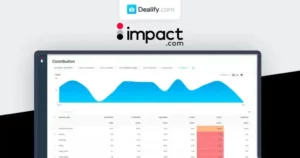Lead tracking software is a powerful tool that helps businesses manage and monitor leads through the sales process, improving efficiency and conversion rates. Key features include user-friendly interfaces, automation, and detailed analytics that enable teams to focus on high-priority leads for better results.
Lead tracking software is more than just a tool; it’s your business’s secret weapon in managing prospects effectively. In a world where rapid communication can make or break a sale, having the right software to track your leads ensures you never miss an opportunity. This article will delve into what lead tracking software entails, its key advantages, and tips on selecting the best one for your business.
What is Lead Tracking Software?
Lead tracking software is a digital tool designed to monitor and manage leads throughout the sales process. This software helps businesses capture leads from various sources, repository and evaluate them effectively. By keeping track of interactions with potential customers, it enables sales teams to understand their behaviors and preferences.
Functions of Lead Tracking Software
One of the primary functions of lead tracking software is to collect data from multiple channels, such as emails, web forms, and social media. This information is stored in a centralized database, allowing sales professionals to view and manage leads easily. Consequently, this reduces the chance of losing crucial data and provides a comprehensive view of each lead’s journey.
Importance of Lead Tracking
Using lead tracking software is vital for businesses that aim to improve their sales efficiency. It helps identify high-quality leads and prioritize them based on their engagement level. Moreover, by analyzing lead data, companies can tailor their marketing strategies and improve conversion rates, leading to higher revenue.
Integration with Other Tools
Lead tracking software often integrates seamlessly with other business tools like CRM systems, email marketing platforms, and analytics software. This integration ensures that all aspects of the sales process are synced, creating a more coherent workflow and better data analysis.
In summary, lead tracking software serves as a crucial element in optimizing sales processes, enabling businesses to convert leads into customers with greater efficiency.
Advantages of Using Lead Tracking Software

Implementing lead tracking software provides businesses with several advantages that can significantly enhance their sales process. These advantages are not just limited to tracking leads but also extend to overall business operations.
Improved Lead Management
One of the primary benefits is improved lead management. With this software, businesses can easily categorize and prioritize leads based on their interaction and engagement. This ensures that sales teams focus on leads most likely to convert, increasing efficiency.
Better Communication
Lead tracking software facilitates better communication within teams. It allows sales representatives to share insights and updates, ensuring everyone is on the same page. This collaborative approach aids in responding to leads faster and addressing their concerns promptly.
Data-Driven Insights
Another significant advantage is the access to data-driven insights. The software provides valuable analytics that help businesses understand customer behavior. By recognizing patterns and trends, companies can tailor their marketing strategies to meet customer needs effectively.
Increased Conversion Rates
Utilizing lead tracking software can lead to increased conversion rates. By having a better grasp of how leads interact with a business, companies can refine their sales tactics and follow-ups, ultimately closing more deals.
Time Efficiency
Finally, lead tracking software saves time. Automation features reduce the need for manual input and tracking, allowing sales teams to focus on engaging leads rather than managing data. This increase in efficiency can translate into a more productive sales workforce.
Top Features to Look For in Lead Tracking Software
When selecting lead tracking software, it’s essential to consider key features that enhance functionality and improve sales efficiency. Knowing what to look for can help your business make the best choice.
User-Friendly Interface
A user-friendly interface is crucial for ensuring that all team members can navigate the software easily. Look for platforms that offer intuitive layouts and clear navigation, allowing your team to focus on leads rather than struggling with the system.
Integration Capabilities
The ability to integrate with other tools, such as CRM systems and email marketing platforms, is vital. This ensures that all your business data stays connected and synchronized, providing a comprehensive view of your sales process.
Automated Lead Scoring
Automated lead scoring helps prioritize leads based on their engagement levels. This feature enables sales teams to focus their efforts on high-potential leads, increasing the chances of conversion.
Analytics and Reporting
Robust analytics and reporting features are essential for tracking performance and understanding customer behavior. Look for software that offers detailed reports and dashboards, providing insights that can direct your sales strategies effectively.
Customization Options
Lastly, customization options allow businesses to tailor the software to their unique needs. Customizable fields, tags, and workflows can improve how your team interacts with leads, making processes more efficient.
How to Choose the Right Lead Tracking Software

Selecting the right lead tracking software is crucial for the success of your sales team. Here are some steps to guide you through the selection process.
Identify Your Business Needs
Start by identifying your specific business needs. Consider factors such as the size of your team, the volume of leads you handle, and your sales processes. Understanding these requirements will help narrow down your options.
Research Available Options
Research the various lead tracking software solutions available in the market. Look for reviews and comparisons online to get an idea of what each software offers. Pay attention to features, pricing, and user experiences.
Request Demos or Trials
Most software companies offer demos or free trials. Take advantage of these opportunities to see the software in action. This hands-on experience will help you assess usability and functionality, making it easier to decide if it fits your team’s workflow.
Get Feedback from Your Team
Involve your sales team in the selection process. Their feedback is invaluable as they will be the primary users of the software. Collect input on the features that matter most to them and any preferences they might have based on their experience.
Consider Cost vs. Value
Finally, analyze the cost against the value the software brings to your business. While it may be tempting to choose the cheapest option, consider the potential return on investment (ROI). Investing in a quality lead tracking software might yield better results and efficiency in the long run.
Best Practices for Implementing Lead Tracking Software
Implementing lead tracking software effectively requires careful planning and execution. Here are some best practices to ensure a smooth transition and successful use of the software.
Train Your Team
Invest time in training your team on how to use the lead tracking software. Comprehensive training ensures that everyone understands the features and functionality, which can lead to better adoption rates and more effective use of the tool.
Set Clear Goals
Before implementation, set clear goals on what you want to achieve with the software. Whether it’s improving lead response time or increasing conversion rates, having specific objectives will guide your team and keep everyone focused.
Customize the Software
Utilize customization options to tailor the software to your unique business needs. Custom fields, workflows, and dashboards can provide better insights and ensure that the software aligns perfectly with your operational processes.
Regularly Monitor Performance
After implementation, regularly monitor the performance of the lead tracking software. Use built-in analytics to track key metrics and assess how well the software is meeting your goals. This will allow you to make adjustments as needed to improve effectiveness.
Encourage Team Feedback
Encourage continuous feedback from your team about the software’s usability and effectiveness. Regular input can help identify areas for improvement and ensure that the software remains a valuable asset for lead management.
In Summary: Harnessing the Power of Lead Tracking Software
Using lead tracking software can greatly improve how your business manages prospects and boosts sales. By understanding its features and implementing best practices, your team can work more effectively together.
From improving lead management to providing valuable insights, the benefits of this software are clear. With the right training and customization, you can unlock its full potential.
Remember to set clear goals and regularly monitor performance to keep your team on track. With these steps, you can harness lead tracking software to elevate your business and stay ahead in a competitive market.
FAQ – Frequently Asked Questions about Lead Tracking Software
What is lead tracking software used for?
Lead tracking software is designed to help businesses monitor and manage leads throughout the sales process, improving sales efficiency and conversion rates.
How can lead tracking software improve my sales team’s performance?
By providing analytics, automation, and organized lead management, lead tracking software helps sales teams focus on high-priority leads, ultimately leading to better results.
What features should I look for in lead tracking software?
Key features to look for include user-friendly interfaces, integration capabilities, automated lead scoring, detailed analytics, and customization options.
Is training necessary for using lead tracking software?
Yes, proper training is essential to ensure that your team fully understands how to utilize the software effectively, which can lead to better adoption and performance.
Can lead tracking software integrate with other tools?
Most modern lead tracking software offers integration with CRM systems, email platforms, and analytics tools, creating a seamless workflow for sales operations.
How do I know if lead tracking software is right for my business?
Assess your business needs, research options, and utilize trials or demos to see if the software aligns with your sales goals and processes.




